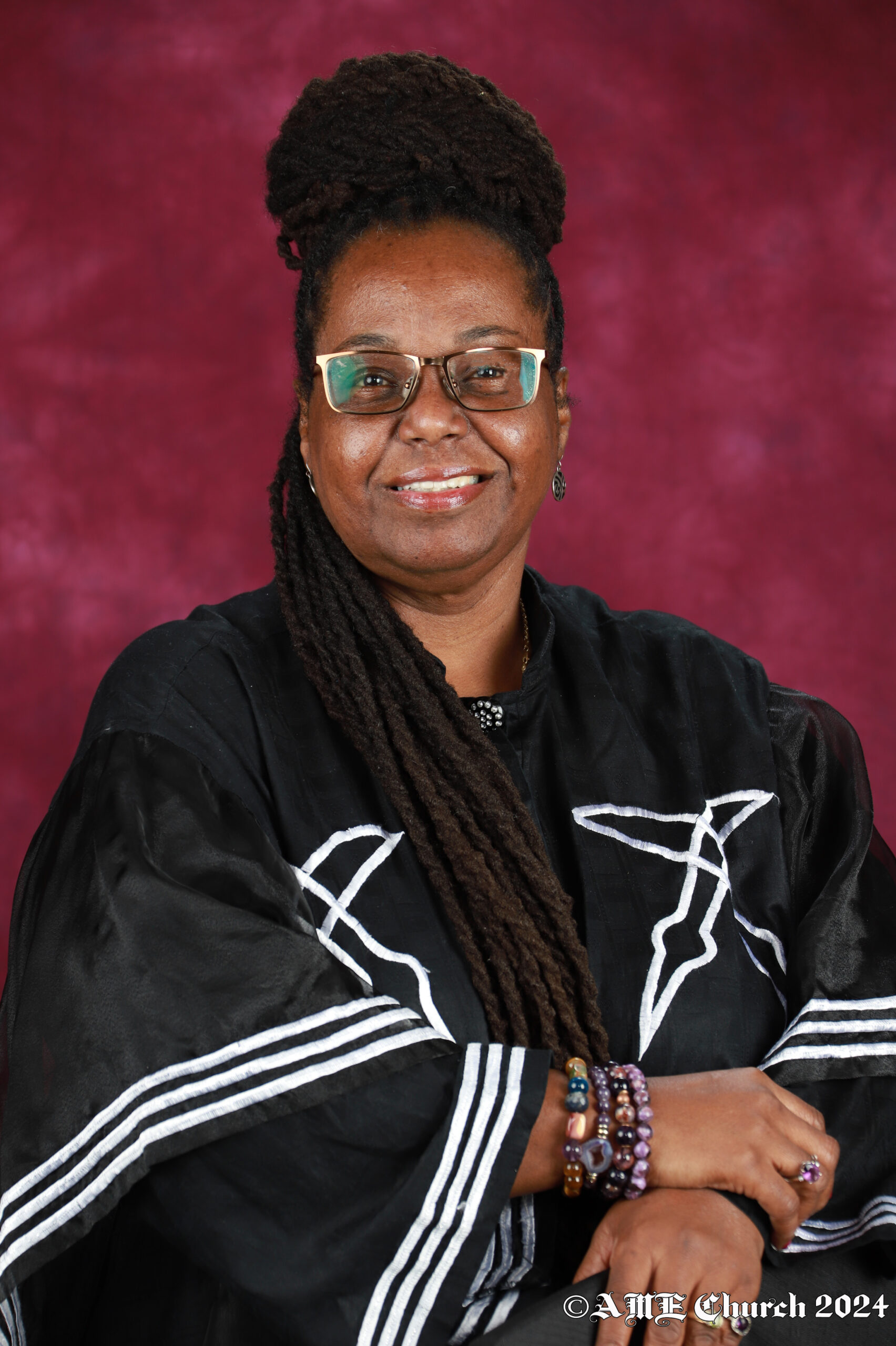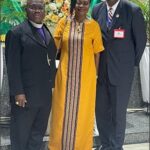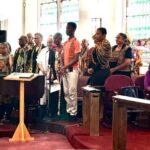By D’Yonce-Sade Williamson, First Episcopal District
To know you are called is one thing, but to act on it is another. From age 5, the Rev. Dr. Miriam Burnett felt called to the medical field. She always knew when a family member was sick, “I just had a feeling and would tell my mom to call them.” And she would often be right. She participated in junior high school STEM activities and took it even further when she entered high school by volunteering at the sliding scale clinics twice a week. Dr. Burnett was active in the public health long before society even attached a name to the work being done.
When asked why she pursued public health, Dr. Burnett said, “There must be more.” And she was right. At the time, Rev.Miriam had no idea what calling God had for her, but the path had already been forged. The question was, was she willing to walk it regardless of who was around?
Dr. Burnett knew she had to go to medical school to do more. In the early 1980s, the Army was a public health machine. She enlisted and received a health profession scholarship from the Department of Defense. She would be active on duty when she was on break from school.
While Dr. Burnett was born into the United Methodist denomination, much like Richard Allen, the founder of the African Methodist Episcopal Church, she soon realized that when it came to being a black person—and, more specifically, a young black woman—both the United Methodist faith and her pastor at the time did not have her or her people’s best interests at heart. She shared this with her parents, and her father sent her and her mother in search of a new house of God to call home.
They came to The Greater Allen AME Cathedral in Jamaica, Queens, under the pastorate of Rev. Floyd H. Flake, who helped affirm that she was on the right path. If you are familiar with Rev. Flake, he was very prevalent in social justice and teaching the community about their history, including the history of the AME Church. Dr. Burnett realized that the AME Church was founded on the very practices she was passionate about: social activism, partnership, and health. After learning about the AME Church’s hand in the Yellow Fever epidemic, Dr. Burnett knew she found the right place.
Dr. Burnett has mentored many people, both men and women, and even the youth, but the truth is, she had no one to mentor her. She was the first black woman to receive the three degrees tying medicine, public health, and ministry – Doctorate of Medicine, Master in Public Health, and Master of Divinity. After leaving Queens, Dr. Burnett went to San Antonio, Texas, where she officially began her work with AME Church as a part of the Health Commission. She stated that one day, she and the late Rev. William (Bill) Wright – Dr. Burnett’s mentor at Brooke Army Medical Center, were going through the Doctrine and Discipline of the AME Church and realized there was a Health Commission segment they were unaware of.
They forged the commission at Emmanuel AME San Antonio, where she became the Assistant Health Director. She finished her residency three years later and went to Moncrief in Fort Jackson. She was sent to another church where she met the Rev. Rosalyn Grant Coleman, who told Dr. Burnett to keep doing what she was doing for the Health Commission. Dr. Burnett did health workshops and screenings. She went to the district level and then took the Health Commission to the Columbia Annual Conference, where Bishop Adams, Presiding Prelate, appointed her the 7th Episcopal District Health Director. Soon after, she was elected Medical Director. to serve with Gwen Williams, Executive Director.
At this time, 90% of the work done by the Health Commission was through first aid efforts; however, Dr. Burnett knew she was called to do more. She and Dr. Williams began to write bylaws to establish the Health Commission beyond first aid, which resulted in the creation of fourteen ministries within it. Dr. Burnett said that her mother, church membership, and sisterhood of her sorority, Alpha Kappa Alpha Sorority, Incorporated, inspired her to continue pushing through the many obstacles.
Having been exposed to the World Health Organization during medical school, Dr. Burnett took the Health Commission globally. Her experience with global health on the ecumenical level allowed her to scale the impact of the commission within the AME Connection. She realized the AME Church, though global in its own right, was still missing a key factor in terms of the health of its people throughout the world. When asked why she remained with the AME Church despite having connections to other organizations such as the National Council of Churches, Dr. Burnett stated, “The AME. Church is home, and whatever I did, I brought it right back.”
Dr. Miriam Burnett now serves as the Supervisor of Missions in the administration of Bishop Francine Brookins. Everything she had ever done led her to this point because she realized, “I was a missionary the entire time.” Together, Bishop Brookins and Episcopal Supervisor Burnett fostered agricultural and health resources in the 18th Episcopal District. She said the people of the 18th District had the manpower and the will; they were just in need of someone who could teach them how to fish.”
Dr. Burnett retired from the Health Commission after 37 years of service, 24 of which were as the Medical Director, but her work is far from over.






Forever grateful, Dr. Burnett, for the amazing leadership and mentoring that you provided to church and community through the International Health Commission and World Health Organization.
“But her work is far from over” loveee this article!
Reverend Miriam Burnett, M.D., MPH thank you for you labor, vision, and care of the people.
A nice article—-5th district member